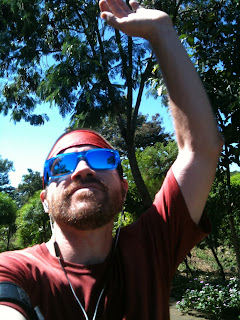 Funerals aren't much fun. They are hard because you feel the empty space left by your loved-one. There are questions that you'll never get answered and goodbye's that you'll never get to really say. You also see your friends and family suffering, remembering the good times and lamenting the missed opportunities, and their grief is also painful to watch.
Funerals aren't much fun. They are hard because you feel the empty space left by your loved-one. There are questions that you'll never get answered and goodbye's that you'll never get to really say. You also see your friends and family suffering, remembering the good times and lamenting the missed opportunities, and their grief is also painful to watch.Friday morning before getting out of bed I found myself wondering about the two big questions. First, what happens after we die? As part of Uncle Mike's eulogy, my dad read an excerpt from Socrates' final speech that I have looked to in the past when asking this difficult question. Before taking the hemlock sentenced to him, Socrates attempts to allay the lamentations of his disciples by explaining his view of death and what may come next. He states that one of two things must happen. If death is simply the cessation of life and there is no afterlife or continued consciousness, then death must be similar to a perfect, dreamless night. There is no fear, nor longing nor discomfort of any kind in a dreamless sleep, and therefore such a state would be a welcomed alternative to the suffering that is our day-to-day existence. If, on the other hand, the soul is transferred from one plane of existence to another, such as the Greek's Hades or Christianity's Heaven, then all the better. What a great way to pass eternity, chatting and debating with Homer, or any other writer, philosopher, or for that matter, friend or family member from the past. Regardless of which of these possibilities is true, I can take refuge in knowing that one way or another, the dead no longer suffer.
The second big question that came up Friday morning: what is the meaning of life? While I believe that the answer to that question is different for different people, I do think a common thread runs through the various answers. Many of us would like to think that our life has been successful if we leave the world a better place, and that people's lives have changed for the better having known us. As I heard the testimonies from the many students, coworkers, friends and family members, detailing Uncle Mike's life and good deeds, I know that he did just that. And while that does not completely remove the sadness of his passing, it does help with it.





